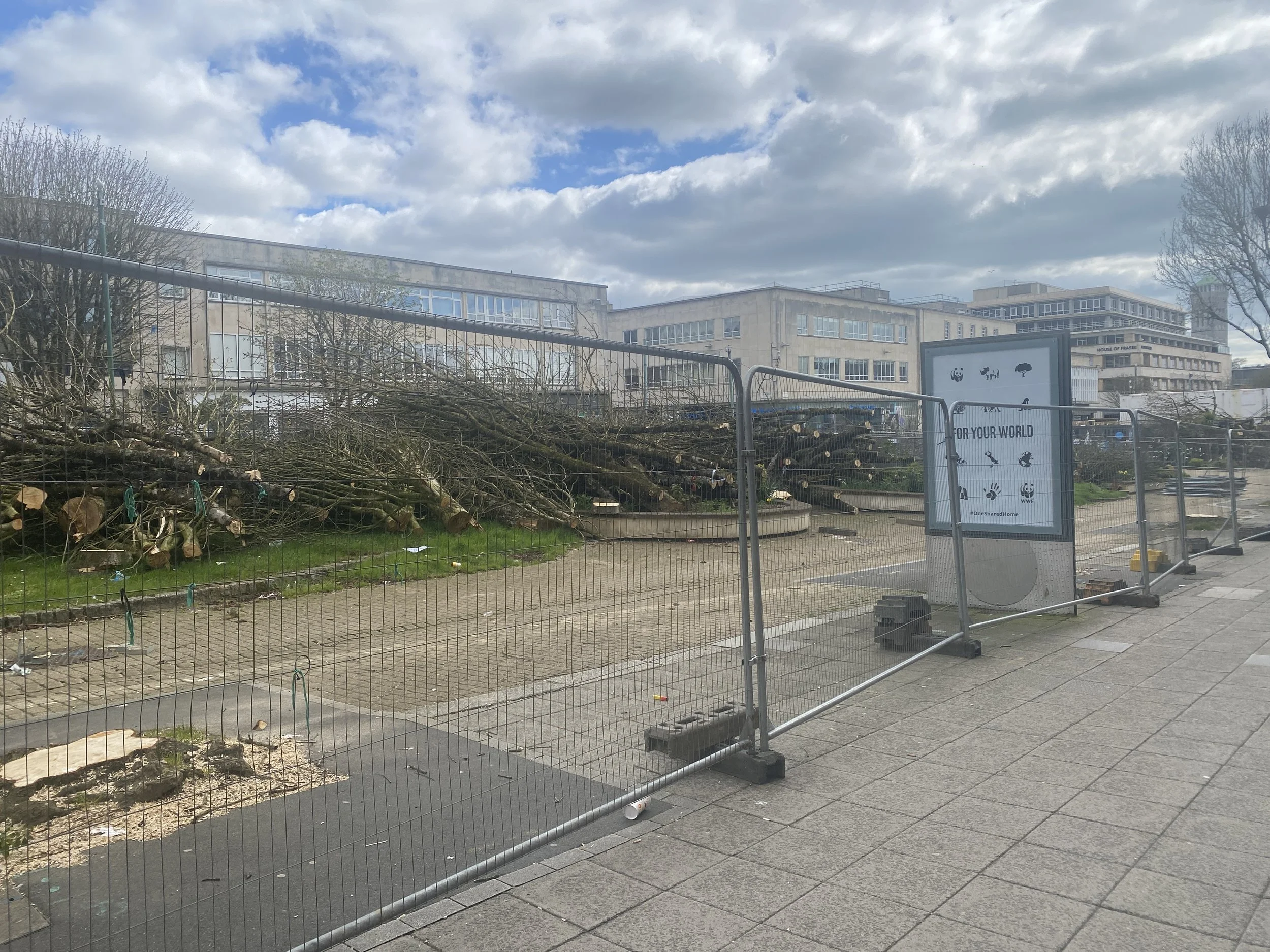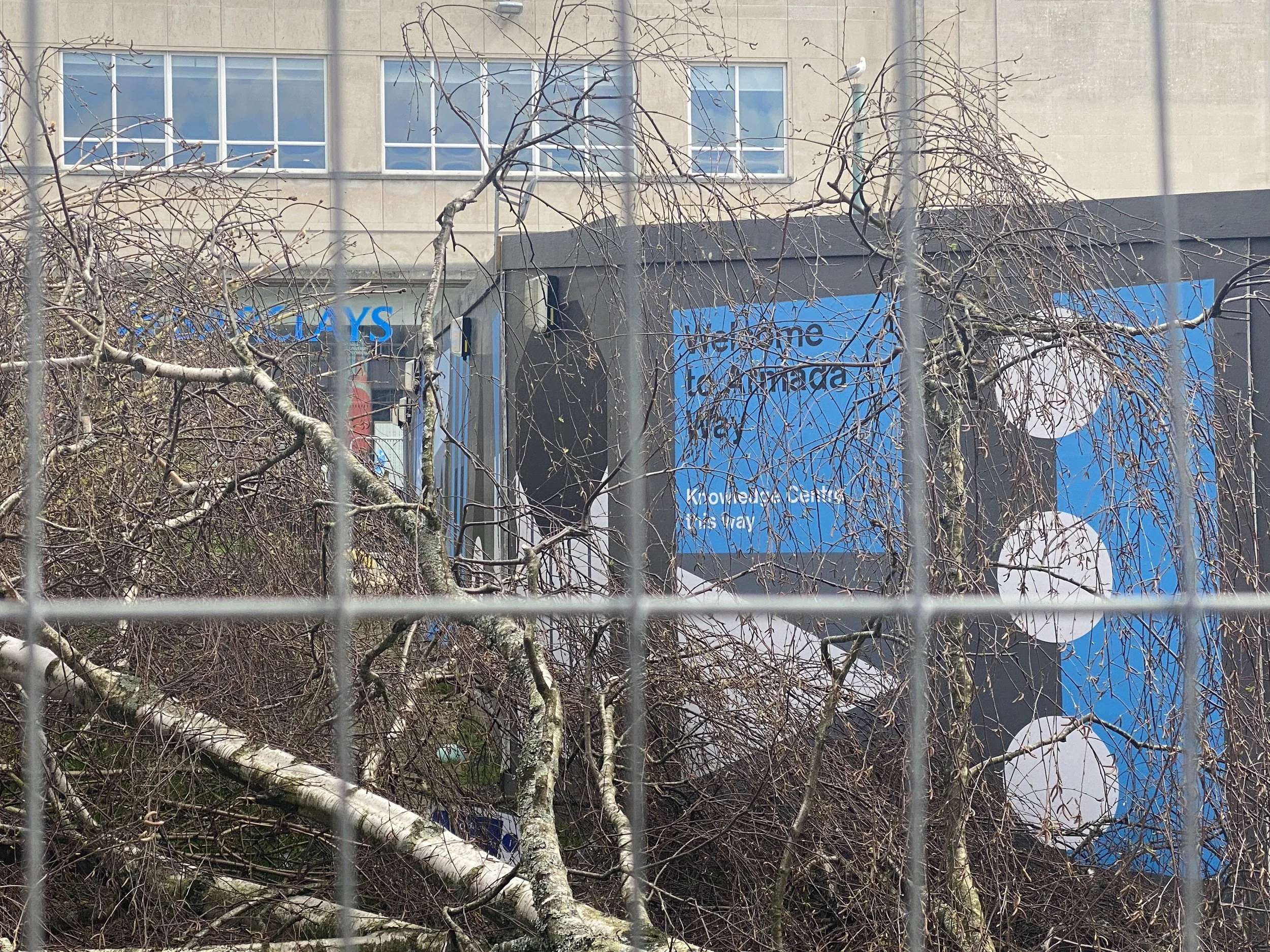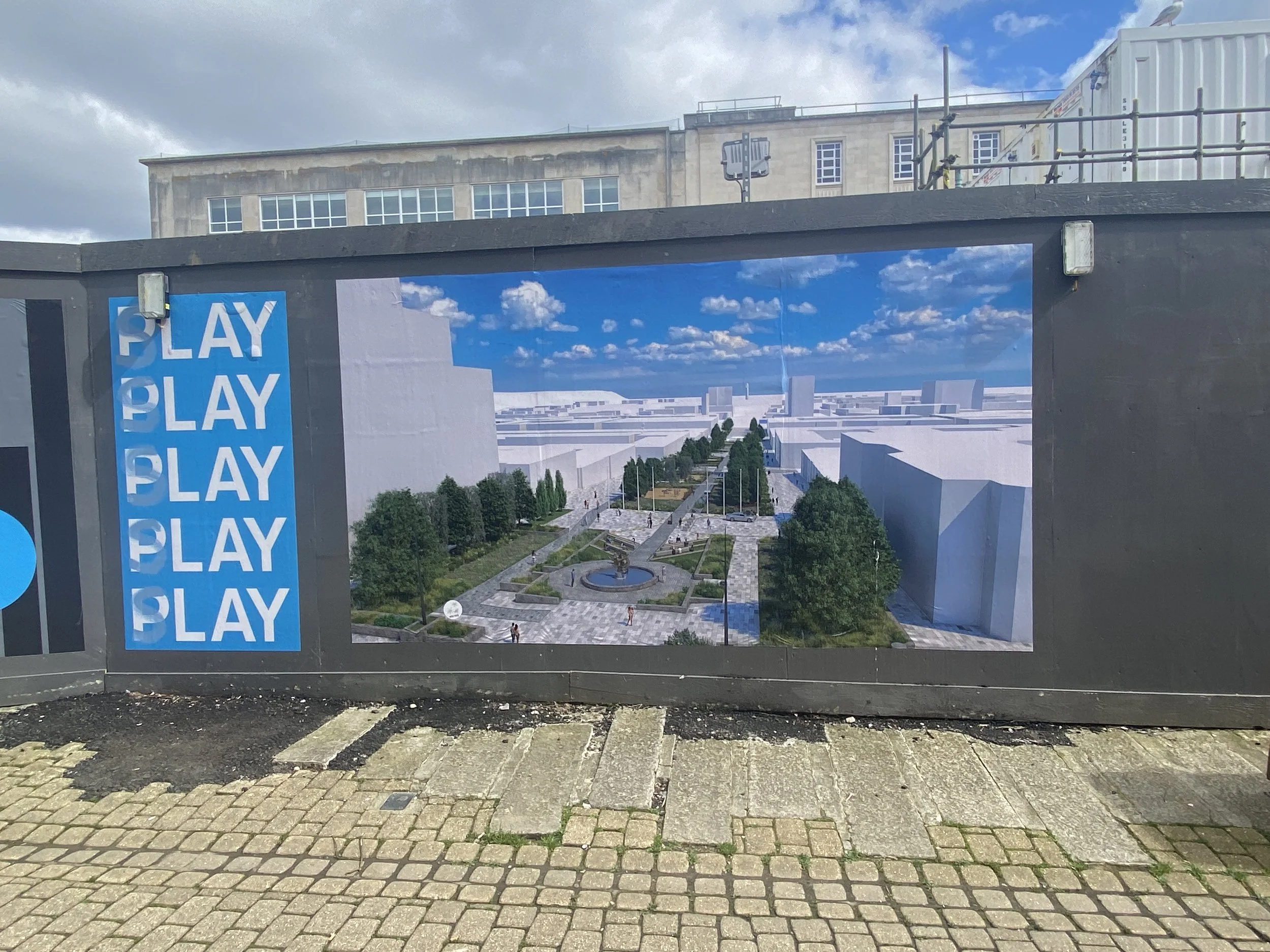
An Unexpected visit to an Ecocide Crime, Plymouth, UK
It’s how it always goes. The tracks were flooded and I could not get off the train when and where I wanted to - even to visit Avebury stone circle. Instead, I ended up at the historic Full Moon public house in Bristol (again). That changed everything. Not only was the train free, but I took a bus in the morning to Plymouth for a fiver. And because I was on that bus, this is the destruction I saw first thing when I left the station.
In March 2023, over 100 trees were felled in Plymouth, England under the cover of darkness. A community advocacy group stilled the saws at 1 am by successfully filing for an injunction. The head of the Plymouth Council immediately resigned, but the damage to the mature trees had largely been done.
When I stepped out onto the walking mall my jaw dropped. I barely believed what my eyes were showing me. Cut after cut after cut piled high. Ugly. Dystopian. The posters all over town making it worse. “For Your World” with images of animals and trees. Hashtag #OneSharedHome. This couldn’t be happening right? They do realize what they’ve done? Worse yet, posters for the “Campaign Against Living Miserably - United Against Suicide Today and Everyday.” Do they not realize killing nature is killing ourselves?
I stopped a silver haired woman as she walked near a chain link fence covered in prayer ties and asked if she had a moment to tell me what had happened. She was clearly distraught and fought to keep her emotions even somewhat contained as she recounted how the trees had been cut overnight and that the town was absolutely devastated. She told me that people were coming out for vigils and sharing their mourning and grief together. Absolutely gutted.
She walked on and I soon noticed another woman, blond, in her 40’s perhaps looking carefully at the trees. I caught eyes with her, and asked if she knew what had happened. Fortuitously, she was a local biodiversity expert who was taking down observations of the state of the trees. And as it so happened, I found myself speaking with one of the women responsible for the injunction and the saving of 15 trees that terrible night just two weeks prior, the wounds of both the trees and the communities still fresh. She was able to share more with me about the impact on the community and the fire it had lit in some people who were now incredibly motivated to learn about and to pursue Rights of Nature legislation.
She also explained how the townsfolk had rallied creatively taking actions such as regular chalk presentations depicting and informing about the tree species involved. Between the vigils and music and chalking - the community had really come out to protect what remained and to engage in the rest of the process going forward. Even more have become active reading and responding to objections and appeals from both sides, and engaging on topics from how long to let the felled trees stay to not disturb birds still nesting in them, to what species must be planted to give a chance at regenerating the ecosystem, right down to the placement of a new bench or row of stones which might interfere with the root systems of the remaining trees.
It was my honor to be able to deliver some good news from having attended the UN Water Conference. And just a few words about the success of the Water and Heritage Shield, the commitments of the defending the Boyne and Shannon in Ireland and the riparian border work championed by Andrew St. Ledger, and my new friend teared up. This is lonely work. And it matters that there are others fighting and winning.
And it’s not the only case people are fighting! I strongly encourage everyone to check out and follow the work of STRAW (Save the Trees Armada Way) and you’ll find information about similar fights in Sheffield and Torbay, for example.
The Woodland Trust recently released a Tree Equity tool and map!
STRAW wrote: “The new Tree Equity tool released today by The Woodland Trust is fascinating. We were lucky enough to be talked through how it works a few weeks ago.
Not only can you compare the tree cover in different areas, you can also check all sorts of other socio economic factors such as deprivation, health and pollution. An interesting picture certainly appears.
The importance of urban trees is not just about carbon capture to fight climate change. It’s about the local benefits to our wellbeing, health and wildlife.”
Learn more about STRAW (Save the Trees Armada Way) and how you can get involved in protecting the trees in your corner of the world.
Learn more about legally establishing the Rights of Nature at GARN (Global Alliance for the Rights of Nature).






